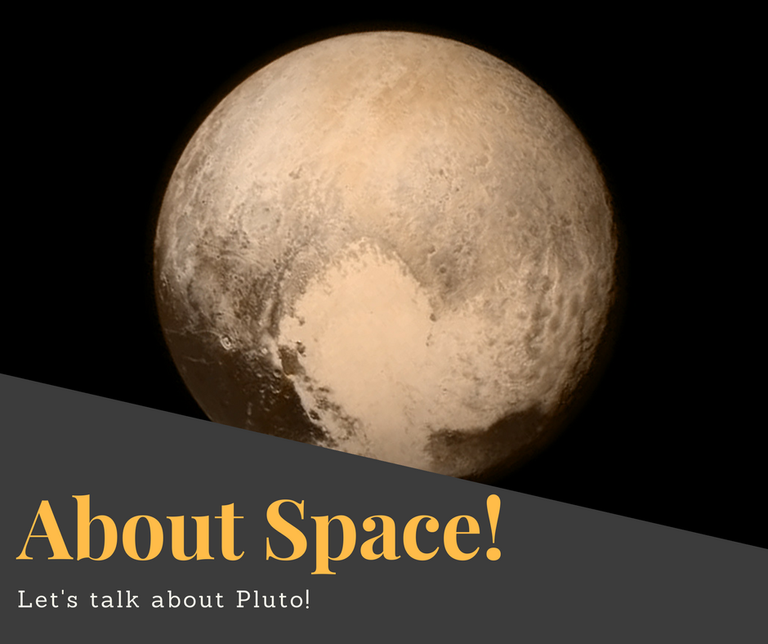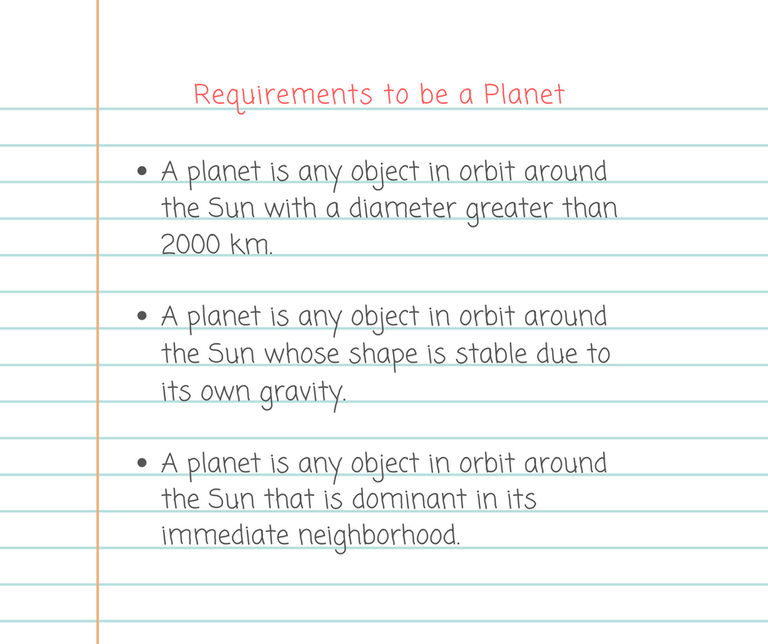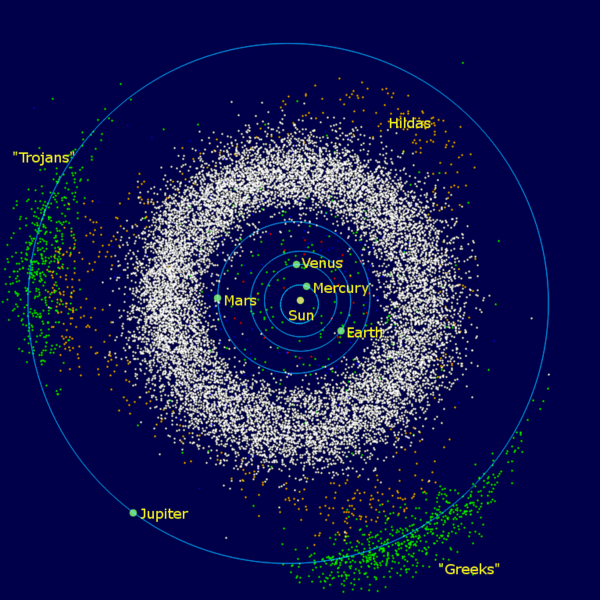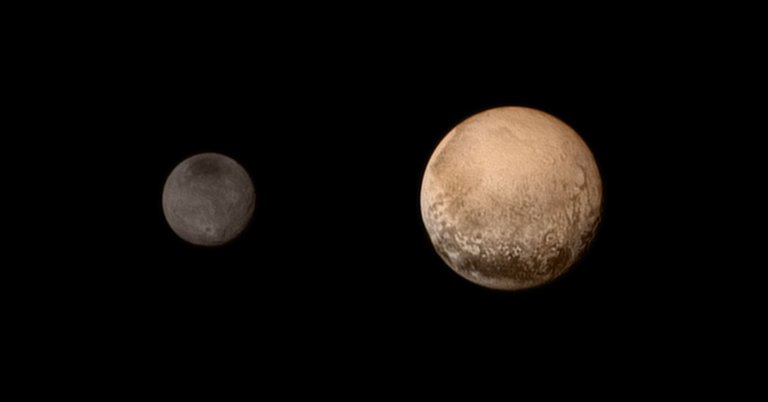
Okay, opening up this can of worms that we all pretty much thought nailed closed. But I've got a bone to pick with scientists and whoever came up with the definition of a planet.
NOTE- I am by no means a dedicated scientist who has studied every facet that can be accessed on the topic of planets or Astronomy in general. However, as a person who likes to nit-pick at definitions and likes to be very specific, I will throw my hat in and give my own opinion. Comments for or against my position are welcome but please be courteous. It's not like we'll change anything by being mean to each other.
So down to business.
First off, the definition of a planet. The term originally started as a Greek word (asteres planetai- ἀστέρες πλανῆται - "wandering star") meaning "wanderer" since planets wandered the night sky and didn't stay fixed as most stars do. This caused a few problems, though the Greeks didn't know it at the time) because the definition applied to EVERY planet, asteroid, satelite (aka. moons) and the sun. It wasn't until the 1800s that it started to narrow down to what we know as planets in our solar system.
Then, in the 1990s, as we started to discover more objects, the definition became unclear as other objects were discovered orbiting other stars, increasing the number of planets. It soon became clear in January 2005 that a new definition of the word planet was needed when Eris, a planet-like object that is bigger than Pluto, was found farther out from the Sun.
This is how the definition stands today:

Here's where things get dicey, though. According to the definition brought by the International Astronomical Union (IAU), there are little doubts that Pluto isn't a planet. BUT, that would also mean that Earth is not a planet either. And using the same rules, you can go all the way to Jupiter and still not have a planet.
My Reasonings.
The first problem I have with the definition is the "dominant in its immediate neighbourhood" requirement. Going on, the IAU also states that the planet has to clear its orbit and not be constrained by the gravity of another body.
Basically, my opinion of the facts is that no planet has cleared its orbit totally to become dominant. Nearly every planet has bodies in its orbit that effect it.

The Trojans and asteroids in the inner Solar System.
But even if you want to work with the planet clearing it's orbit, what does it entail? Does it mean that NO bodies of decent influence are in the neighborhood? Or perhaps only within a specific bubble or corridor around the planet?
My second complaint is that of acceptance. When this definition was established, it was only voted on by 5% of the IAU, hardly representative of a broad agreement. I would not want only 5% of anybody setting terms an definitions for the entirety of a group. Why was this not voted on by the entire IAU? I understand that there would be debate and possibly no agreement but it's better than moving forward with a bad definition and then having to change it later.
To sum it up, I don't think the definition is a bad start, just that it's unclear and ambiguous and did not have the concencous of the majority. If a better definition was brought forward, I would be more than happy to accept it. But as it is, I can't accept something so sloppy.
(I'm not the only one with this opinion, I see. Alan Stern, head of NASA's New Horizons mission to Pluto, has circulated a petition among astronomers to alter the definition with many of the same arguements as I brought forward.)
So Pluto, if you hear me, I love you and you're a planet to me. Unless they come up with a better definition of a planet. Then you'll be an amazing dwarf planet or whatever they make you into.
 Pluto and its moon, Charon.
Pluto and its moon, Charon.